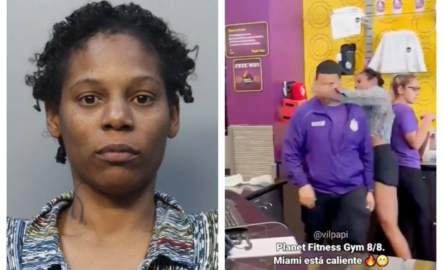Martin Jenkins is the kind of man many should aspire to be like; a man who has worked hard to be where he is and insists on living life dedicated to serving his community. He had a signed contract with the NFL in the 70s with the Seattle Seahawks but walked away and enrolled in law school so he could give back to society.
Jenkins is from a family of five and his father had a full-time job with the city of San Francisco as a clerk and janitor at Coit Tower. To earn extra money to fend for the family, Jenkins helped his father clean office buildings and churches. His mother was a nurse by profession.
It was after earning his undergraduate degree from Santa Clara University that a young astonishing Jenkins signed a contract with NFL’s Seattle Seahawks.
The San Franciscan native might have been great at football but always had a knack for justice and the law. His interest was aroused at an early stage when his mother got hurt in an accident and a “competent, humble, and compassionate lawyer” took on her case pro bono which she won and got her medical bills catered for.
While in Santa Clara, he also played an advocate for his fellow teammate who was in disciplinary action. His impeccable performance impressed the coach, Pat Malley, who sat on the disciplinary board.
Malley advised Jenkins to pursue law and connected him to three African-American lawyers who mentored him and told him “the impact he could make on the community.”
Jenkins enrolled at the University of San Francisco School of Law under the Academic Support Program (ASP) that provided academic and emotional support to him throughout his program.
He was appointed as a trial attorney by former President Ronald Reagan in the civil rights division of the U.S. Department of Justice.
This role meant a lot to him because he wanted to create an impact in the civil rights division after growing up on the experiences of his family during the Jim Crow South era. He took on cases of racial violence such as cross burnings and police misconduct.
He went on to work as a trial lawyer for the Pacific Bell Legal Department of San Francisco, served on the Oakland Municipal Court from 1989 to 1992 after which he was appointed a judge on the Alameda County Superior Court from 1992 to 1997.
From 1997 to 2008, he worked at the San Francisco-based federal district court. Jenkins is a Democrat who excelled in his career with nominations from Republicans purely based on his abilities and skills.
His appointment to the Alameda court was by Former Republican Gov. George Deukmejian, and Rep. Gov. Pete Wilson raised him to the county’s Superior Court. Former Republican Gov. Arnold Schwarzenegger took him to the San Francisco-based state Court of Appeal, First Appellate District in 2008.
His work in the courts ended in 2019 where he was made the governor’s judicial appointments secretary by Gov. Gavin Newsom. He contributed to diversifying the California judiciary with his work with the Regional Judicial Selection Advisory Committees to appoint 45 jurists from different backgrounds.
The 66-year-old was nominated by Newsom earlier this month to the California Supreme Court. When confirmed, Jenkins will be the first openly gay justice on the California Supreme Court and the third ever Black man to be appointed to the state’s highest court after 29 years, the governor’s office said.
His reputation among the legal circles is unmatched. “Justice Jenkins is widely respected among lawyers and jurists, active in his Oakland community and his faith, and is a decent man to his core,” Newsom said in a statement.
“As a critical member of my senior leadership team, I’ve seen first-hand that Justice Jenkins possesses brilliance and humility in equal measure.”
Some view law as an abstract entity but Jenkins believes it should be practiced logically.
“The best days are when I have a case with not much written on the issues and I have to figure it out. For example, with policy issues, what did the legislature really mean? I believe that the law should never be too divorced from common sense.”
He is a fair man according to his colleagues and “he was intensely aware that real people’s lives were affected by his rulings and wanted to make sure he got it right. That’s the kind of man he is,” retired Senior U.S. District Judge Thelton Henderson said in a statement released by the governor’s office.
Of all his achievements, what Jenkins deems most important is service to his community. His work as a role model and mentor, according to his long-time friend and colleague, Saundra Brown Armstrong, comes on top of the list.
Jenkins said, “I explain that although I’m a judge, the real learning comes from the journey [to get here], not what I look like now.”
For almost three decades and counting, Jenkins mentors the youth group at his local church and runs an academic program in a school he helped start, Vincent Academy, a K-5 charter school in West Oakland.
The school offers intensive academic programs that heroes the arts and scholarship opportunities to cushion parents.
He is part of the San Francisco Achievers, a mentoring program offering guidance and college scholarships to black male high school students in San Francisco. He often gives talks to inner-city high school and middle school students “about the notion of achievement and impediments.”
Jenkins and Armstrong started “fireside chats” to coach underprivileged USF law students by opening their homes and having open conversations about their struggles and fears.
“We welcome students into our homes to provide support and talk about anything the students want to talk about,” Armstrong said.
“We just want to give them a safe space to talk about their fears and challenges, in a culturally sensitive setting that the students may not find elsewhere.”










